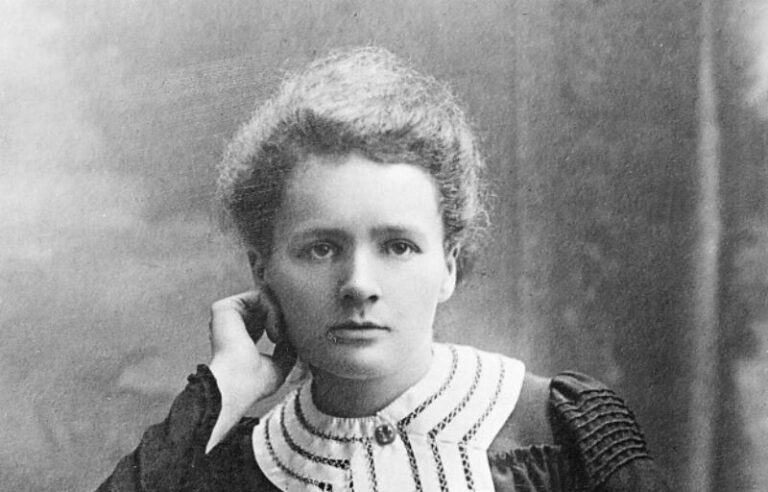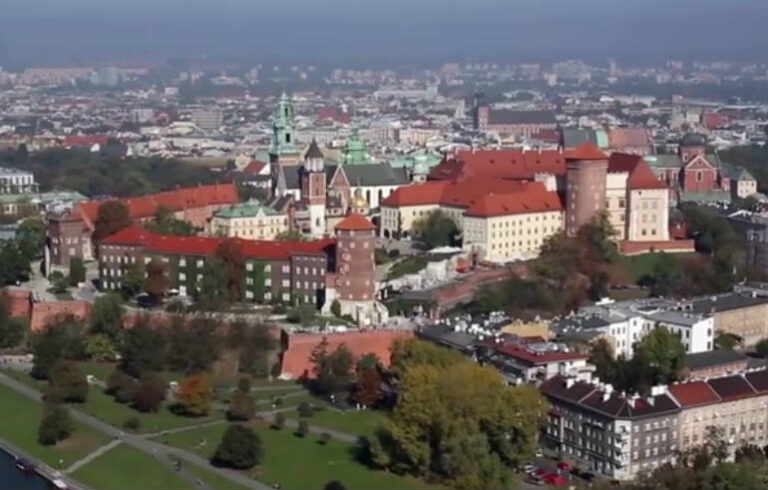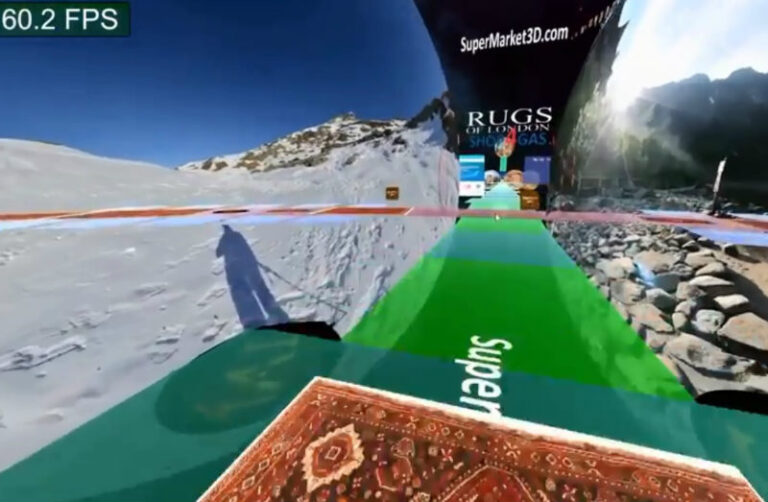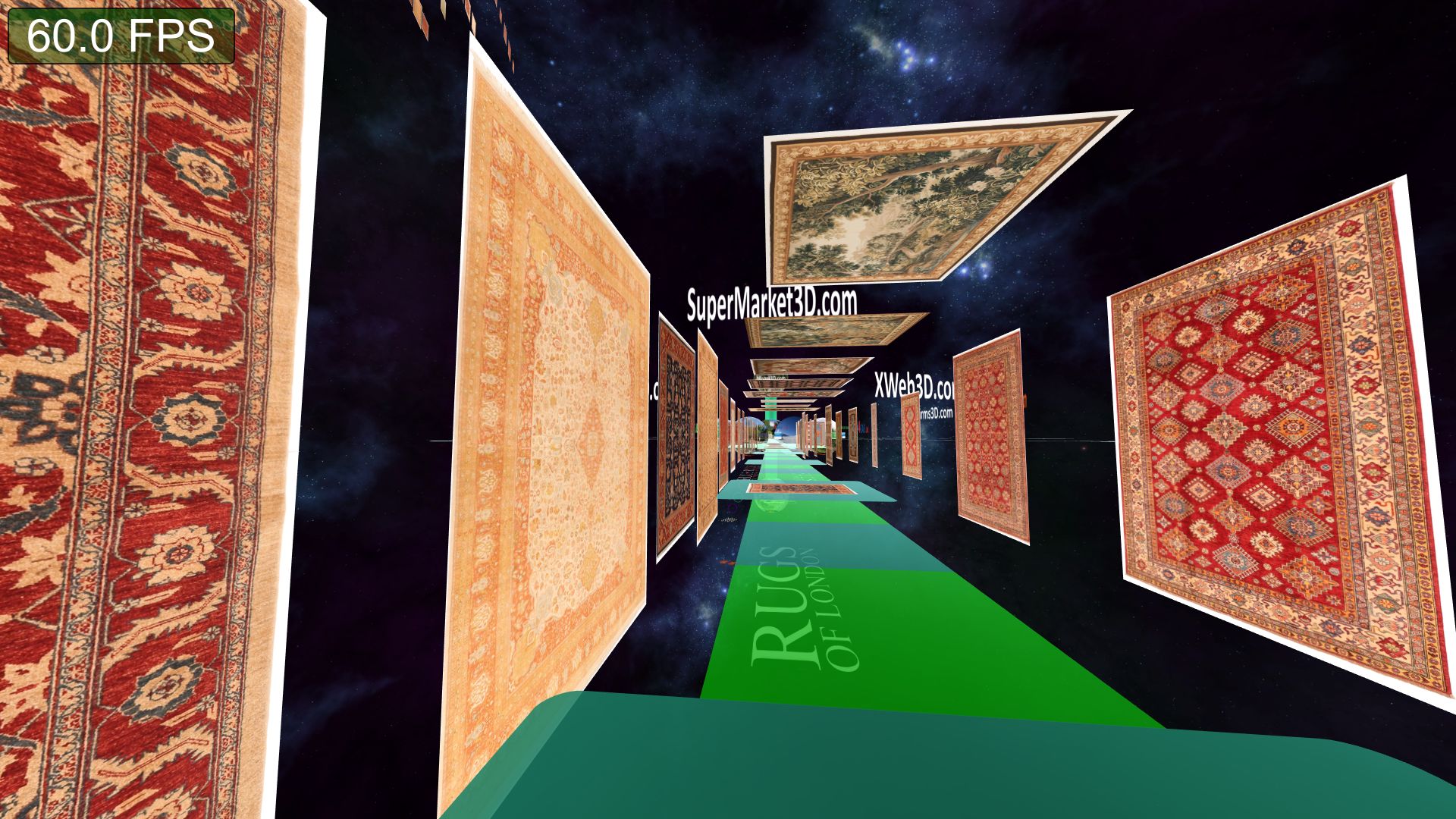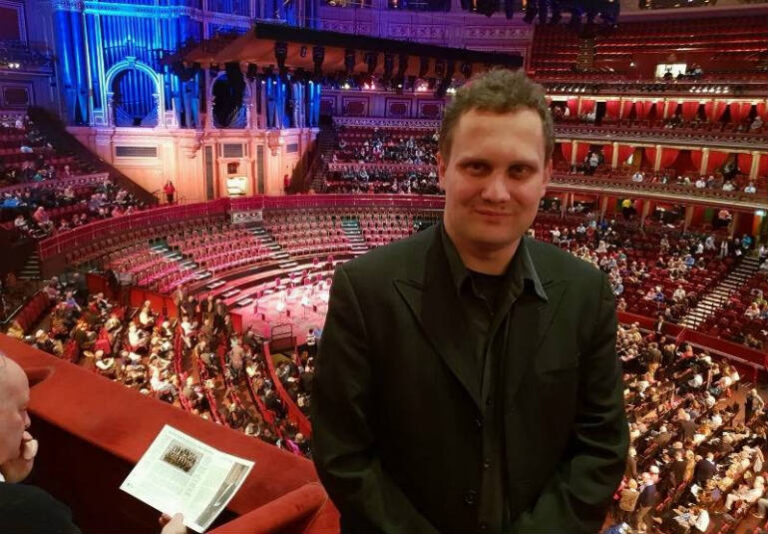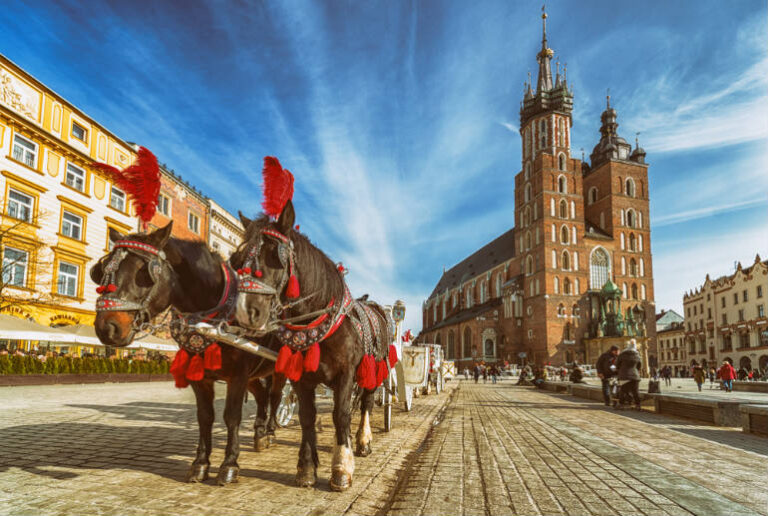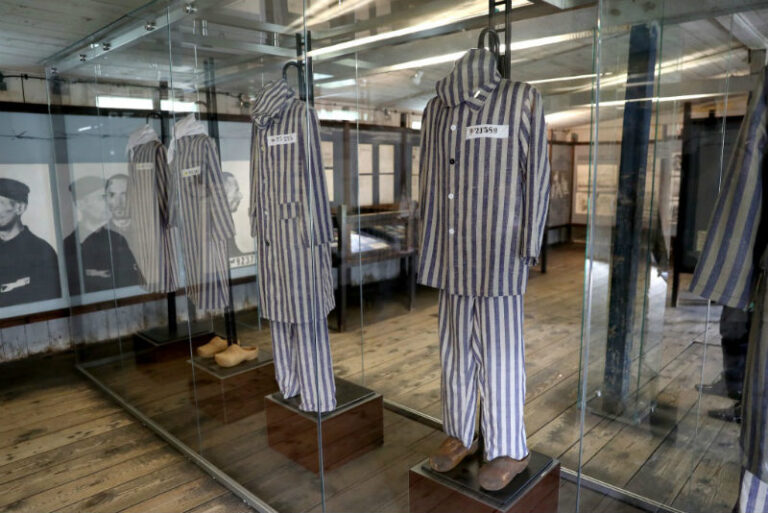We owe the conscious formulation and use of the concept of historical politics to the Germans (Geschichtspolitik). The term “honestly” is crucial here. Historical policy is a fact, and conducting it is not in itself a negative phenomenon.
In German history, the best example of the imposition of a narrative by the authorities was the period of fascism in which the entire semantic system, corresponding to the new power, was created.
Case: Germany
If we agree that the goal of external historical politics is to take care of the best possible international image of a country, then we will probably agree that the task put before the Federal Republic of Germany (formed in 1949) was not an easy one. The international situation turned out to be favorable — the Cold War pushed Germany into the “embrace” of the West, sensitive questions remained unanswered, and even worse, indifference prevailed in West German society towards the Third Reich, as some called it, the “calming of the German conscience.”
Those who noticed this tendency, wrote with indignation and shame about “Germany’s second guilt,” of suppressing and denying the former, or “cold amnesia” or even sarcastically, about “the greatest work of social rehabilitation” for war criminals. For the new German authorities, headed by Chancellor Konrad Adenauer, the internal integration of German society and the reconstruction of the war-ravaged economy took priority. Adenauer considered the German crimes as settled in the Nuremberg trials and revisiting them as harmful and anti-national activities. His words, spoken in 1951, reflected the convictions of West German society well: “It is time to stop sniffing around for Nazis. Once we start, we do not know where it will lead us…”
The German government did not recognize Nuremberg law, so war criminals were judged, like ordinary criminals, for murder and, in the worst case, faced the threat of life imprisonment. The German criminologist, Dieter Schenk, called the government, administration and justice policy in the 1950s and 1960s the “structural non-pursuit of murderers.” Schenk reported that in 1950, 66-75% of judges and prosecutors were former members of the NSDAP. If someone was already brought before the court, defense attorneys and judges used a few simple procedures.
The defendants were recognized as having acted in a totalitarian system, and therefore could not be held responsible as perpetrators, because they acted “in a state of higher necessity induced by an order.” Besides, their actions were not genocide, but so-called “acts of war”, and therefore permitted by international law. Acting to the benefit of the accused, there was also the characteristic German respect for power and the state. The trials were accompanied by the social conviction that it was an injustice to punish the perpetrators, while those that gave the orders (Hitler, Himmler, etc.) escaped responsibility.
Without getting into the details of historical debates and the handful of trials that took place in postwar Germany, it is worth emphasizing the obvious change that took place in the historical narrative of World War II after the reunification of Germany in 1990. Groups of “revisionists” such as Herbert Chai and Herbert Hupki, questioning the German-Polish border, were rejected; however, they represented only a marginal viewpoint in German society. Today, the German narrative is part of modern soft power and uses political marketing instruments. Such actions in the context of the role of the words described above seem to be much more dangerous in effect, as they can slowly and imperceptibly alter the image of the past.
Winston Churchill, in saying: “History will be kind to me, because I am going to write it myself”, grasped the meaning of “fighting with words”. Proper word combinations and concepts create a new hierarchy of past events, change their context and allow them to be categorized differently (e.g. to move away from national aspects and move towards more universal ones, such as human rights). Three examples of “semantic disputes”, which are essential in both Polish and German historical narratives, are presented and discussed below.
Example 1: German crimes
The terminology related to German war crimes on Polish lands still hasn’t been settled. Both in the professional literature and in everyday language, many terms are used alongside one another: German crimes, Nazi crimes, Hitlerite crimes. Terminological precision seems necessary in this case. Coherent, logically-derived recommendations for using specific terms to identify the crimes of the German occupier prevent confusion and even historical relativism, and also serve historical education and the development of responsible patriotism.
Consistent use of the right terms also enables state and local authorities to synchronize and unambiguously respond to both accidental and deliberate distortions emerging in the international public sphere. In Germany, the concept of German crimes was not used in principle. Politicians especially tried not to conflate the crimes of World War II with the German people, and the principle of using the term “Nazi” instead of “German” was introduced by Chancellor Konrad Adenauer. Formulations such as “Nazi crimes,” “Hitler’s crimes,” “crimes committed in the name of the German people” were used in public discourse. Today, “Nazi-Verbrechen” (Nazi crimes) is used most often.
This terminology has, over time, helped to blur the public consciousness about who the Nazis were. A great example of the German argumentation is a column by a German professor, Klaus Bachmann, otherwise very friendly to Poland. In response to a letter from the Polish Institute of National Remembrance to local authorities on the use of “German” (i.e. German crimes, German concentration camps and extermination camps, German occupation, etc.) in commemorating the victims of World War II, Bachmann notes that the name “German crimes” changes the categories from ideological to national and leads to identifying the perpetrators with only one nation. He also writes that this term distorts history because “not all Germans were Nazis, and many fanatical Nazi followers were not Germans.” In support of his own arguments, he presents the possible consequences of such a change: “The crimes of some Italians against others would cease to be fascist crimes, and would become Italian crimes. Soviet crimes would become Russian crimes.”
Klaus Bachmann is not mistaken about the facts, but does not take into account one essential issue — both a Austrian Nazi and a German official working in the General Government or a concentration camp, without even being national socialists, were representatives of the German Reich — Deutsches Reich. They represented its interests, and through their work legitimated, though often not directly, the activities of the country, including its crimes. Concentration camps were built not by the party, but by the German state, which was also responsible for the administration of the camp system, while the state also benefited from the slave labor of prisoners and the property stolen from them. Hence, naming these crimes German does not identify them with the nation, but with the German state.
The consistent use of the term “German” crimes and camps, is supported by the fact that over time, the “Nazi/Nazis” language loses its connotation with the German people in public opinion, as evidenced by many studies in the United States, Australia, Canada, and unfortunately, in Europe as well. The Nazis become a mythical people, of unknown origin. Or in time, in the narrative about World War II, the Nazis become Lithuanians, Ukrainians or Poles (more on this later).
Finally, it is worthwhile to show how the “semantic struggle” can be pursued with the use of modern technologies. When you enter “deutsche Verbrechen in Polen” (German crimes in Poland) in the web browser Google.de, only the first two results are pages on the Wehrmacht’s crimes in Poland and the German occupation of Poland, the others refer to Polish crimes committed against Germans and the Volksdeutsch (one of which covers the time period from 1681 to 1939).
Example 2: Polish camps
The use of “Polish camps” caused quite a stir, when President Barack Obama used this formulation during the posthumous conferment of the Presidential Medal of Freedom to Jan Karski. The painful paradox of this situation was not only that Jan Karski had seen with his own eyes life (or rather death) in the Warsaw Ghetto and the German camp in Izbica, which Obama called a “Polish camp”. As a courier of the Polish Underground State, he informed the world (including President Roosevelt) about the Holocaust.
An additional paradox was that the medal was received by former Polish Foreign Minister, Adam Daniel Rotfeld, who in 2005, along with the editorial board of the Rzeczpospolita daily, started a campaign against the use of “Polish camps” in foreign media.[14] The history of using the name “Polish camp” for German concentration and extermination camps in occupied Poland, is a lengthy one and is associated with the previously mentioned naming usage, and thus avoids the name “German camp”. There is also a supposition, unfortunately still unconfirmed through scholarship, appearing only in popular academic texts, concerning the history of the term “Polish concentration camps”.
This term was said to have been created by the German BND (Bundes Nachrichten Dienst – West German secret intelligence), in Agency 114 (Dienstelle 114), whose assignment was the destigmatization of the Germans. A number of former Nazis served in this cell, headed by a former sergeant of the secret Nazi military police (Geheime Feldpolizei). It was they who were to have come up with the “semantic lie” to convince world opinion in favor of the Federal Republic of Germany, cutting it off to a certain degree from the apparatus of terror during World War II. The BND archives were opened for German researchers, but we still have no confirmation of this hypothesis. If it turns out to be true, it would be a very interesting example of effective semantic manipulation.
Since the international press, including in Germany, uses the term “Polish death camps” (polnische Vernichtungslager), Poland cannot afford to use the term Nazi camps, which washes away responsibility for the crimes. Insisting that it is only a geographic connotation is a mistake, since while the camps existed, Poland did not exist and its lands were incorporated into the German Reich or its territories were occupied by it. The question remains why the camps in Poland are called Polish, according to the “logic of geography”, and camps in Germany, of which there were over 20, are called “Nazi” instead of “German”? What explains the fact that this is how it is written in reputable, European newspapers?
According to a report from the Polish Ministry of Foreign Affairs, the term “Polish concentration camps” was used as many as 103 times in foreign media in 2009 alone. Most often this term appeared in the German press (as many as 20 times). In 2012 there were also over 100 interventions, in 2013, 106 and in 2014, 151, and in 2015 — 277 interventions of the Polish Ministry of Foreign Affairs. Regrettably, the German newspapers that used this wording aren’t local or niche publications. In most cases, these are mass-scale, opinion-shaping newspapers or magazines, including Der Spiegel, Bild, Der Tagesspiegel, Die Welt, Die Zeit as well as two news agencies: German Reuters and DPA (Deutsche Presse Agentur).
After numerous interventions by the Polish Ministry of Foreign Affairs and the editorial board of Rzeczpospolita, most German journalists apologized and made corrections. There were, however, instances of such translations appearing in news crawls on-screen that simply would not fit the phrase “concentration camps built in occupied Poland by the Germans.” In January 2015, on the 70th anniversary of the liberation of KL Auschwitz, in commentary on the ceremonies taking place there, the words “Polish camps” also appeared. They were used both by CNN and German newspapers (including Rheinische Post, Mannheimer Morgen, Rhein Neckar Zeitung). Of course, in all cases, the Polish diplomatic service intervened.
Example 3: Auschwitz
In 1998, a very serious debate took place in Germany, whose original cause was ultimately a misunderstanding that had its origins in semantics. In 1998, writer Martin Walser received the most prestigious German literature prize — the Peace Prize of the German Book Trade. On this occasion he gave a speech in Frankfurt at the Church of St. Paul, titled “Sonntagsrede”, which can be translated as “Sunday talk”. The main axis of Walser’s speech was German collective memory of the crimes of World War II and, above all, the Holocaust. He stressed that the process of commemorating this history was only to remind the Germans of these crimes, which greatly hampered the positive, affirmative attitude of the nation to its own identity.
On the other hand, he observed that “often not memory, and nor the will to save from forgetting, but the instrumentalization of our disgrace to the present needs, is the main motive here.”[23] In his talk, Walser was not speaking against the cultivation of memory of the Holocaust, but against its instrumentalization and ritualization (especially in terms of collective, state rituals). He continued: “Auschwitz is not suited to be a routine scarecrow, a perpetually useful sobering agent, moral club or just a kind of compulsory exercise. Something that becomes a ritual, acquires the quality of hastily whispered prayer.”
He thus warned against the abuse of Auschwitz as a rhetorical form, a political and media tool. He did it in his own style, using many metaphors and understatements (certainly with the intention of provoking serious intellectual discussion).[24] Ignatz Bubis, chairman of the Central Council of Jews in Germany, took this speech very literally (just like most of the public), although in one case he was certainly right — as a member of Germany’s spiritual and intellectual elite, Martin Walser should have been aware that his sophisticated speech would provide arguments for the extreme right. And that is what happened, regardless of his intentions.
Bubis excoriated Walser during a speech at the Berlin synagogue on the anniversary of the “Night of Broken Glass” (Kristallnacht), calling him a “spiritual arsonist” (geistiger Brandstifter), accusing him of wanting to sever Holocaust history with a “final stroke” (Schlußstrich) and propagate “the culture of gaze aversion.”[26] Bubis also drew attention to the vocabulary used in the “Sonntagsrede”, in which Walser referred to the Holocaust as an “imperishable disgrace” (unvergängliche Schande). The words “disgrace” were used in his speech four times in reference to the Holocaust, but as Bubis emphasized, he never once used the word “crime”. Heated discussion divided German intellectuals, journalists and public opinion. While earlier debates were focused only on the past, the Walser-Bubis debate was primarily concerned with the words and concepts that describe the past, and the shape of memory of events, whose mere moral assessment did not cause controversy in Germany.
Another example of a semantic dispute, this time Polish-German, is the circumstances of the change of the name of the Auschwitz-Birkenau Concentration Camp from the current “Auschwitz Concentration Camp” to the new “Former Nazi German Concentration Camp Auschwitz-Birkenau” (2006).
Both cases have been criticized by certain German newspapers. It is worth looking at the arguments of German journalists, because this logic is becoming more and more common in Germany. The most outraged, Arno Widmann (Berliner Zeitung) puts forward two types of arguments: first — moral. No one has the right to reduce the symbol of genocide “to a German event between 1940-1945 (auf ein deutsches Ereignis zwischen 1940 und 1945 zu reduzieren).” Second — practical. It is difficult to imagine that German, Jewish or American students would say to one another: we are going to the former Nazi German Concentration Camp Auschwitz-Birkenau.
Omitting the rather absurd argument raising the impracticality of the new name, it is worth considering further the first argument. It reflects a clear tendency in the German historical narrative, which can be called the “moral universalization” of crimes. Representatives of the left and the liberal center have begun to use the terminology and concepts of basic human rights, with particular emphasis on individual rights. The slogans: “Hitler is in each of us”, “criminals have no nationality”, “victims are equal in the face of suffering”, often used by the German left, help serve to show the direction of such reasoning.
This concept has been picked up by the Federation of Expellees and politicians associated with it, but although it does not deserve condemnation by itself, devoid of historical context and ignoring cause-effect relationships, it becomes a tool for the manipulation of history. Among such recently seen tools is the proper hierarchy of events. While general knowledge of the Holocaust in German society is quite common, and the sense of moral responsibility for the genocide against the Jews is indisputable, the problem of crimes against Slavic peoples does not exist in the consciousness of the average German.
This is a result of education and presents an alibi that is quite comfortable for many Germans— that the number of Jewish victims justifies the sole focus only on the Holocaust; although the Roma and homosexuals (always in the same order) also appear among the victims of German concentration camps.
It is worth emphasizing here that German knowledge on the subject of World War II crimes is quite poor, as evidenced by many studies conducted by various German academic centers. In 2012 the Forsa Institute conducted a study, the results of which were quite shocking. Even with the great preoccupation of the German state with Holocaust studies, it turned out that 21% of Germans aged 18-30 did not associate anything with the word Auschwitz.
Other studies show that even if Germans know the general figures associated with the Holocaust, they have no idea about the “technical” details of the final solution. Most cannot explain what happened in the extermination camps like Dachau, Treblinka, and thus do not know the role of the state in the annihilation and do not understand its industrial character. In the same study, most respondents showed a total lack of knowledge of the crimes committed in German-occupied countries; for instance, in Greece, Poland, and even the Soviet Union, along which the “mythical” eastern front ran.
The argument undermining the legitimacy of assigning responsibility for crimes motivated by a criminal ideology (e.g. Nazism, Communism) to an entire nation, was not only raised by Germans. “Not all Germans were Nazis and not all Nazis were Germans,” said the English MEP, Baroness Sara Ludford, who refused to sign a resolution commemorating the 60th anniversary of the liberation of Auschwitz, claiming that the camp was not built by the Germans but by the Nazis.
Conclusions
The historical politics of countries is conducted on different levels, but one of the most important ones is historical narrative. Presently, it is carried out with many modern tools: academic research (especially through funding), film, internet, press, books. Words place a central role in all of these instruments. George Orwell in 1984 wrote: “Who controls the past controls the future. Who controls the present controls the past.”
Although Orwell wrote about Stalinist totalitarianism and the manipulation of history, to a large degree these words remain valid. Historical politics is primarily politics, so the main measure of its efficiency is effectiveness. German historical politics are certainly among the best in the world: 70 years after the war was unleashed by the German Reich, supported to varying degrees by 90% of the population, Germany is one of the most sought after political and economic partners in the world. Moreover, in different rankings of sympathy, Germany usually occupies the leading positions, even in Poland —sympathy for Germany grows year by year.
Germany expertly uses soft power in foreign policy, and above all in historical politics. While in earlier times it was aimed at building a positive image of Germany, in recent years it has also addressed the change of the image and role of the Germans in the past. This tendency should cause concern and, if need be, an acute Polish reaction.
By analyzing the actions of different circles, governmental agencies, and the German press, we can see different tendencies applied to change the narrative about World War II and German crimes, although it would be saying too much to claim that this is a coherent, centrally coordinated policy. This does not however preclude its common purpose — the destigmatization of the German people.
source: WARSAW INSTITUTE Author: Joanna Lubecka, PhD


